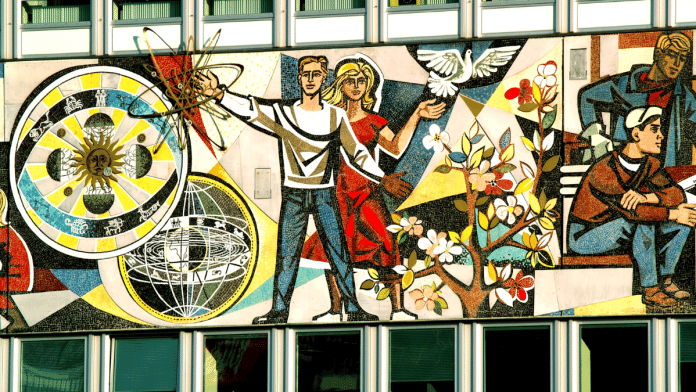Thank you dear subscribers, we are overwhelmed with your response.
Your Turn is a unique section from ThePrint featuring points of view from its subscribers. If you are a subscriber, have a point of view, please send it to us. If not, do subscribe here: https://theprint.in/subscribe/
Throughout the 20th century, the ideological clash between capitalism and communism dominated global politics. Over time, communism, with its centralized governance and inherent shortcomings, has been widely rejected as a viable governing principle.
Now, in the 21st century, it appears that “populist,” “majoritarian,” and so-called “right-wing” movements are actively working to undermine socialist ideology. These efforts often involve portraying socialism in a negative light, especially among their supporters and people unfamiliar with its true meaning.
It is crucial to recognize that socialism, unlike communism, is not inherently centralized. Contrary to the narrative pushed by some right-wing factions, socialism does not oppose meritocracy. Instead, it supports a system where meritocracy thrives while ensuring that prosperity is more equitably distributed. This acknowledges that not everyone is equally equipped due to various socio-economic factors.
As Franklin D. Roosevelt once said, “The test of our progress is not whether we add more to the abundance of those who have much; it is whether we provide enough for those who have too little.” This encapsulates the essence of socialism: creating a system that uplifts the underprivileged without stifling individual excellence.
To address this, there needs to be a global effort to foster an accurate understanding of socialism. The frequent misrepresentation of socialism as being synonymous with communism—or even “wokeism”—is a deliberate tactic employed to discredit its core values. As Martin Luther King Jr. wisely observed, “True compassion is more than flinging a coin to a beggar; it comes to see that an edifice which produces beggars needs restructuring.” Socialism embodies this restructuring by addressing systemic inequalities.
It is essential to emphasize that socialism is not inherently tied to either left- or right-wing ideologies. At its heart, socialism is about narrowing the gap between the “haves” and “have-nots,” striving to create a more equitable society. As Albert Einstein argued in his essay Why Socialism, “The economic anarchy of capitalist society as it exists today is, in my opinion, the real source of the evil.” He believed that socialism offered a means to address this disarray. I believe capitalism has contributed significantly to alleviating poverty to some extent. However, one should position themselves to design policies with either a socialist or capitalist mindset, depending on the needs of those the policy is intended to serve, rather than idolizing one system and demonizing the other..
Promoting a balanced and authentic understanding of socialism is necessary to counter these distortions. By doing so, we can focus on its fundamental principle: reducing inequality and empowering humanity, rather than succumbing to authoritarian interpretations from either end of the political spectrum. Though it may seem unremarkable, the propagation of true socialistic ideals is vital to neutralize attempts to manipulate and undermine its core philosophy.
These pieces are being published as they have been received – they have not been edited/fact-checked by ThePrint


